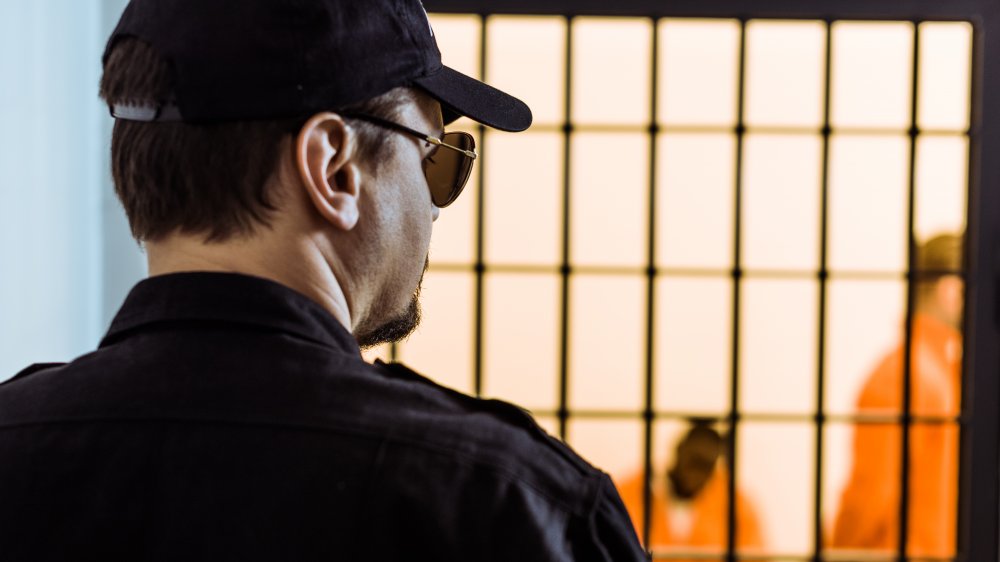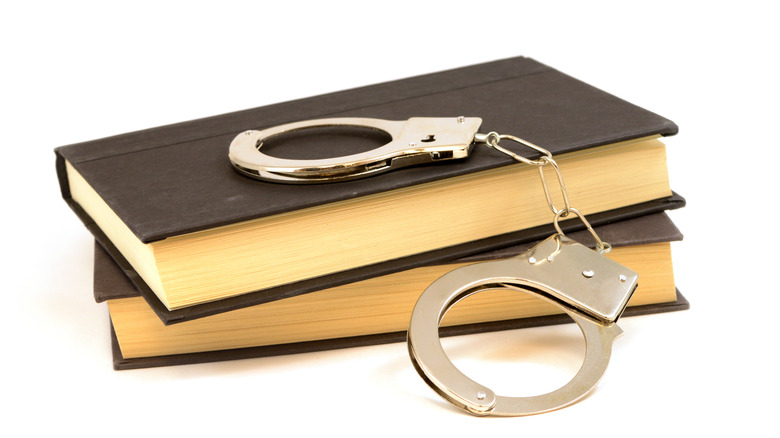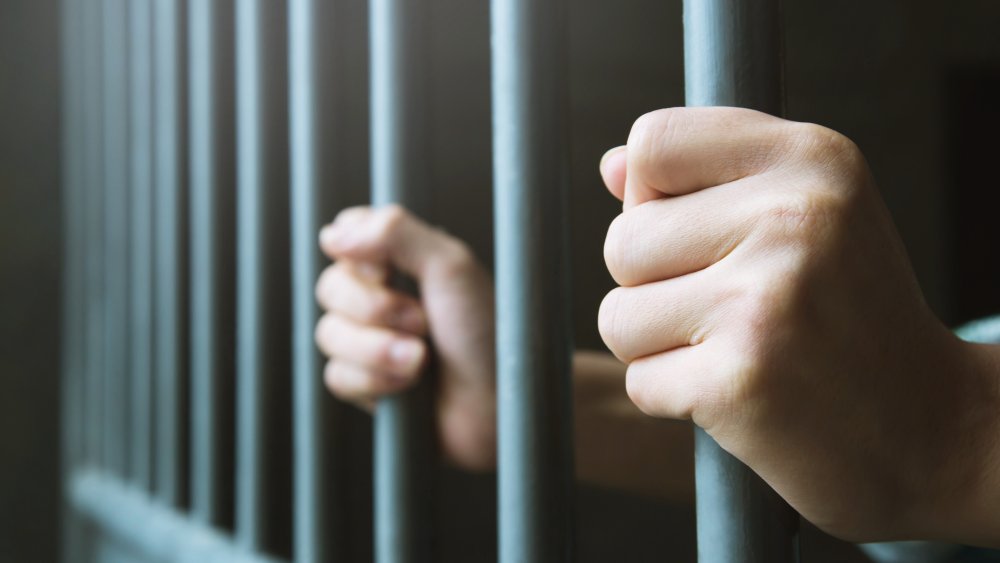Here's What Really Happens During A Prison Cell Search
"If the U.S. prison population were a city, it would be among the country's 10 largest," says CNN. More than the populations of, say, Philadelphia or Dallas. The country locks up more people than more populous nations — China, India — and more totalitarian nations — Russia, the Philippines. The good news, perhaps, is that the incarceration rate has been dropping, after a high of 2.3 million in 2008, according to the Pew Research Center. But even two years ago, when those numbers were crunched, the United States incarcerated a larger share of its population than any other country, anywhere, and well ahead of runner-up El Salvador, with 614 inmates per 100,000, compared to the United States ratio of 655/100,000.
If that's the case, it's a reasonable assumption that a) plenty of people have done time in some fashion or another, and b) plenty of people try to capitalize on that experience as prison time consultants — sort of a Lonely Planet for cons. And so they do.
Books, including Bibles, are common hiding places for contraband
Searching inmate cells and inmate persons might at first glance seem to fly in the face of Fourth Amendment protections against unreasonable searches and seizures. But not really. The searches serve a couple of purposes: removal of dangerous contraband — weapons come to mind; illicit drugs and cell phones are also on the list — and also discipline, since it's a huge inconvenience to the prisoner in question, and let's be honest: Don't we all have our little secrets? If something gets broken while the "shakedown" of the cell occurs, there will be restitution. But still.
Zoukis Consulting Group provides insights especially tailored to those entering Federal custody. They advise that personal searches tend to be random as well as routine, anything from a pat-down, to "empty your pockets." Full-body, invasive searches are permissible under Federal rules, but happen only rarely.
The cells themselves are another matter. The 1984 Supreme Court ruling in Hudson v. Palmer states clearly that prisoners have no reasonable expectation of privacy in their cells, according to Jailhouse Law.
Searches, of persons or cells, can be random
Searches aren't to be used as harassment, but the burden of proof is pretty high on that. Cells usually are searched while prisoners are at meals, and happen several times during a typical shift. Guards performing the search usually work in pairs.
Corrections One offers specifics: anything a prisoner is allowed to have that serves as a container — even personal items, like petroleum jelly. Bags, such as chips. Books, including (perhaps especially) Bibles are great places to hide weapons like home-made knives — shanks.
Serious searches — "Ninja shakedowns," as described by Wayne Snitzky for The Marshall Project, include removing inmates from their cells, strip searches while handcuffed, and through examination of absolutely everything within the cell. Electrical and light plates are removed. Some searchers are more humane than others — less "gung ho," "trying to save the world from my extra bar of soap." Contraband of any kind, minor or major, is removed; other items are dumped unceremoniously on the floor of the cell or the hallway outside, where they may or may not be recovered when the searches are over.


